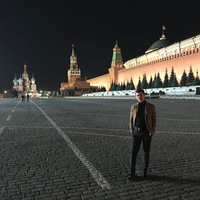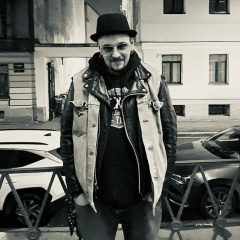С советской властью Есенин и в самом деле несколько разошелся. Только совсем по иной причине.
В сериале "Есенин" есть такие кадры. Поэт, увидев из окна, как расстреливают крестьян, жутко расстраивается и впадает в депрессию. На самом-то деле к красному террору он относился куда более спокойно. Вот что рассказывает поэт Владислав Ходасевич:
"Весной 1918 г. Алексей Толстой вздумал справлять именины. <…> Пришел и Есенин. Привел бородатого брюнета в кожаной куртке. Брюнет прислушивался к беседам. <…> Это был Блюмкин, месяца через три убивший графа Мирбаха, германского посла. Есенин с ним, видимо, дружил. Была в числе гостей поэтесса К. Приглянулась она Есенину. Стал ухаживать. Захотел щегольнуть – и простодушно предложил поэтессе:
– А хотите поглядеть, как расстреливают? Я это вам через Блюмкина в одну минуту устрою".
Вот так, по-простому. Возможно, конечно, что Есенин просто куражился. Но что характерно, ему нравилось быть причастным к сильной и жутковатой власти. Опять же – веселая жизнь! Кого хотим, того и расстреливаем. Еще забавнее отношение Есенина с Троцким, с которым он и в самом деле был знаком. Напомню, что Троцкий в то время искал своих среди литераторов – и уж никак не мог пройти мимо Есенина. А поэту, с одной стороны, Троцкий был неприятен. Только не своей чудовищной жестокостью, а "западничеством". Для Троцкого Россия была лишь базой для раздувания пожара мировой революции. Страна же, как оказалось, упорно не влезала в марксистские рамки. Все шло, и шло вроде бы удачно, – но совсем не в ту сторону. В поэме "Страна негодяев" Троцкий легко узнается в образе коммуниста Чекистова, который заявляет:
Я гражданин из Веймара
И приехал сюда не как еврей,
А как обладающий даром
Укрощать дураков и зверей.
Я ругаю и буду упорно
Проклинать вас хоть тысячи лет,
Потом что…
Потому что хочу в уборную,
А уборных в России нет.
Но с другой стороны, Есенин испытывал перед Троцким восхищение, переходящее в экстаз. Почему? Да потому что Лев Давидович был самой яркой фигурой революции. Который что хотел, то и делал. Не останавливаясь ни перед чем. Напомню, что людям того времени были чужды либеральные принципы. http://profilib.com/chtenie/149498/aleksey-scherbakov-genii-i-zlodeystvo-novoe-mnenie-o-nashey-literature.php
В сериале "Есенин" есть такие кадры. Поэт, увидев из окна, как расстреливают крестьян, жутко расстраивается и впадает в депрессию. На самом-то деле к красному террору он относился куда более спокойно. Вот что рассказывает поэт Владислав Ходасевич:
"Весной 1918 г. Алексей Толстой вздумал справлять именины. <…> Пришел и Есенин. Привел бородатого брюнета в кожаной куртке. Брюнет прислушивался к беседам. <…> Это был Блюмкин, месяца через три убивший графа Мирбаха, германского посла. Есенин с ним, видимо, дружил. Была в числе гостей поэтесса К. Приглянулась она Есенину. Стал ухаживать. Захотел щегольнуть – и простодушно предложил поэтессе:
– А хотите поглядеть, как расстреливают? Я это вам через Блюмкина в одну минуту устрою".
Вот так, по-простому. Возможно, конечно, что Есенин просто куражился. Но что характерно, ему нравилось быть причастным к сильной и жутковатой власти. Опять же – веселая жизнь! Кого хотим, того и расстреливаем. Еще забавнее отношение Есенина с Троцким, с которым он и в самом деле был знаком. Напомню, что Троцкий в то время искал своих среди литераторов – и уж никак не мог пройти мимо Есенина. А поэту, с одной стороны, Троцкий был неприятен. Только не своей чудовищной жестокостью, а "западничеством". Для Троцкого Россия была лишь базой для раздувания пожара мировой революции. Страна же, как оказалось, упорно не влезала в марксистские рамки. Все шло, и шло вроде бы удачно, – но совсем не в ту сторону. В поэме "Страна негодяев" Троцкий легко узнается в образе коммуниста Чекистова, который заявляет:
Я гражданин из Веймара
И приехал сюда не как еврей,
А как обладающий даром
Укрощать дураков и зверей.
Я ругаю и буду упорно
Проклинать вас хоть тысячи лет,
Потом что…
Потому что хочу в уборную,
А уборных в России нет.
Но с другой стороны, Есенин испытывал перед Троцким восхищение, переходящее в экстаз. Почему? Да потому что Лев Давидович был самой яркой фигурой революции. Который что хотел, то и делал. Не останавливаясь ни перед чем. Напомню, что людям того времени были чужды либеральные принципы. http://profilib.com/chtenie/149498/aleksey-scherbakov-genii-i-zlodeystvo-novoe-mnenie-o-nashey-literature.php
Yesenin actually parted somewhat with the Soviet regime. Only for a completely different reason.
In the series "Yesenin" there are such shots. The poet, seeing from the window how the peasants are being shot, is terribly upset and depressed. In fact, he was much more relaxed about the Red Terror. Here is what the poet Vladislav Khodasevich says:
"In the spring of 1918, Alexei Tolstoy decided to celebrate his name day. <...> Yesenin came too. He brought a bearded brunette in a leather jacket. The brunette listened to the conversations. <...> It was Blumkin, who three months later killed Count Mirbach, the German ambassador. Yesenin was with him. Poetess K. was among the guests. She liked Yesenin. He began to court. He wanted to flaunt - and innocently suggested to the poetess:
- Do you want to see how they shoot? I'll arrange it for you through Blumkin in one minute. "
So, in a simple way. It is possible, of course, that Yesenin was simply swaggering. But what is characteristic, he liked to be involved in a strong and eerie power. Again - a fun life! We shoot whoever we want. Even more amusing is Yesenin's relationship with Trotsky, with whom he was in fact familiar. Let me remind you that Trotsky at that time was looking for his own among the writers - and certainly could not pass by Yesenin. On the one hand, Trotsky was unpleasant to the poet. Only not by its monstrous cruelty, but by its "Westernism". For Trotsky, Russia was only a base for fanning the conflagration of the world revolution. The country, as it turned out, stubbornly did not fit into the Marxist framework. Everything went, and seemed to be going well, but in the wrong direction. In the poem "The Country of Scoundrels" Trotsky is easily recognized in the image of the communist Chekistov, who declares:
I am a citizen from Weimar
And I didn't come here as a Jew,
And as a gifted
Tame fools and beasts.
I scold and will persist
Curse you for thousands of years
Then what ...
Because I want to go to the bathroom
And there are no latrines in Russia.
But on the other hand, Yesenin experienced admiration before Trotsky, turning into ecstasy. Why? Because Lev Davidovich was the brightest figure of the revolution. Whoever wanted to do what he did. Stopping at nothing. Let me remind you that people of that time were alien to liberal principles. http://profilib.com/chtenie/149498/aleksey-scherbakov-genii-i-zlodeystvo-novoe-mnenie-o-nashey-literature.php
In the series "Yesenin" there are such shots. The poet, seeing from the window how the peasants are being shot, is terribly upset and depressed. In fact, he was much more relaxed about the Red Terror. Here is what the poet Vladislav Khodasevich says:
"In the spring of 1918, Alexei Tolstoy decided to celebrate his name day. <...> Yesenin came too. He brought a bearded brunette in a leather jacket. The brunette listened to the conversations. <...> It was Blumkin, who three months later killed Count Mirbach, the German ambassador. Yesenin was with him. Poetess K. was among the guests. She liked Yesenin. He began to court. He wanted to flaunt - and innocently suggested to the poetess:
- Do you want to see how they shoot? I'll arrange it for you through Blumkin in one minute. "
So, in a simple way. It is possible, of course, that Yesenin was simply swaggering. But what is characteristic, he liked to be involved in a strong and eerie power. Again - a fun life! We shoot whoever we want. Even more amusing is Yesenin's relationship with Trotsky, with whom he was in fact familiar. Let me remind you that Trotsky at that time was looking for his own among the writers - and certainly could not pass by Yesenin. On the one hand, Trotsky was unpleasant to the poet. Only not by its monstrous cruelty, but by its "Westernism". For Trotsky, Russia was only a base for fanning the conflagration of the world revolution. The country, as it turned out, stubbornly did not fit into the Marxist framework. Everything went, and seemed to be going well, but in the wrong direction. In the poem "The Country of Scoundrels" Trotsky is easily recognized in the image of the communist Chekistov, who declares:
I am a citizen from Weimar
And I didn't come here as a Jew,
And as a gifted
Tame fools and beasts.
I scold and will persist
Curse you for thousands of years
Then what ...
Because I want to go to the bathroom
And there are no latrines in Russia.
But on the other hand, Yesenin experienced admiration before Trotsky, turning into ecstasy. Why? Because Lev Davidovich was the brightest figure of the revolution. Whoever wanted to do what he did. Stopping at nothing. Let me remind you that people of that time were alien to liberal principles. http://profilib.com/chtenie/149498/aleksey-scherbakov-genii-i-zlodeystvo-novoe-mnenie-o-nashey-literature.php
У записи 13 лайков,
6 репостов.
6 репостов.
Эту запись оставил(а) на своей стене Максим Козырев

































